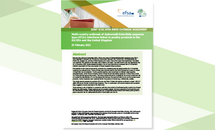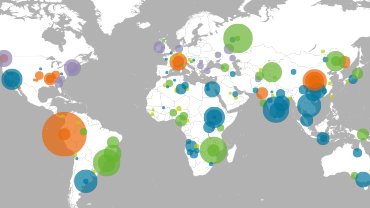Rapid outbreak assessment: Prolonged multi country cluster of Listeria monocytogenes ST155 infections
A genomic cluster of Listeria monocytogenes sequence type (ST) 155, serogroup IIa, infections has been identified in the European Union/European Economic Area (EU/EEA) and the United Kingdom (UK).
Executive Summary
Based on genomic similarity, the cluster can be divided into three sub-clusters, of which only cases due to sub-cluster 1 continue to be reported. Sub-cluster 1 is therefore the focus of this assessment, with 64 cases reported in five EU/EEA countries between 2016 and 2023, of which 17 were in 2022 and 2023 (one in Austria, one in Belgium, eight in Italy, six in Germany, and one in the Netherlands). It includes 10 fatal cases between 2019 and 2023. Sub-clusters 2 and 3 are historical, with 30 cases reported between 2011 and 2021. Based on case interviews, ready-to-eat (RTE) fish products have been implicated as vehicles of infection.
National food investigations, traceability, and genomic data identified 34 L. monocytogenes isolates from 12 fish products and one isolate from a fish processing environment within sub-cluster 1. Sequencing analysis identified a link with two processing plants in Lithuania. In 2022–2023, contaminated fish products from these plants had reached retail markets in Germany and Italy, but there was no information on the product distribution in the other three countries reporting cases. The recurrent detection of the sub-cluster 1 strain from marketed sealed RTE fish products revealed the persistence of the strain in one processing plant over eight years.
Further targeted investigation in the RTE fish production chain is needed to identify the point(s) of contamination. The interruption of the production of RTE fish products in one of the processing plants is likely to reduce infections, but until all sources and sites of contaminations are properly controlled new cases are expected to occur, particularly among vulnerable people (the immunosuppressed and those aged over 75 years).








